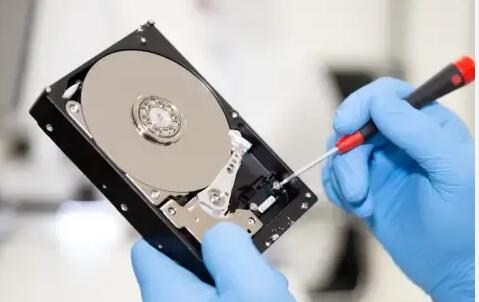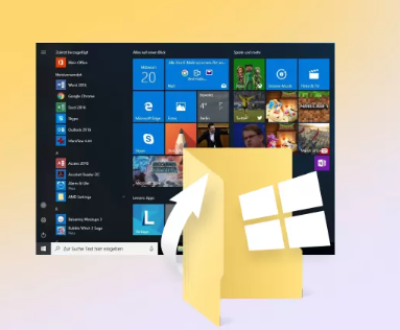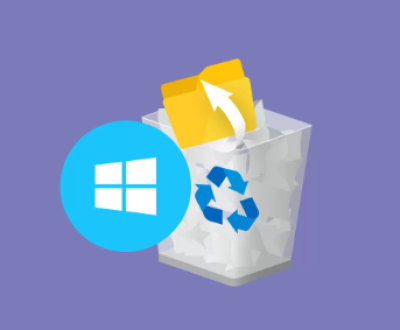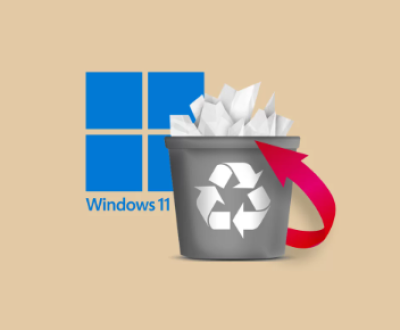Hard drive failure can happen to anyone, and it can be a devastating experience, especially if the lost data is irreplaceable. Whether you’ve accidentally deleted important files, your hard drive has crashed, or you’re dealing with physical damage, data recovery services are your best bet for retrieving your precious information. In Los Angeles, a city home to millions of businesses and individuals, a variety of professional hard drive recovery services are available to help you recover lost data.
1. Logical Failures
A logical failure occurs when the data on the hard drive becomes corrupted or inaccessible, but the physical components of the drive remain intact. Common causes of logical failures include:

Accidental Deletion: Files or folders are unintentionally deleted.
Formatting Errors: A drive is mistakenly formatted, erasing all stored data.
File System Corruption: Problems with the file system (e.g., NTFS, FAT32) can make files inaccessible.
Software Crashes: A sudden system crash or malfunction may result in data loss.
Virus or Malware Attacks: Malicious software may corrupt or delete important data.
2. Physical Failures
Physical failures occur when there’s damage to the physical components of the hard drive, such as the read/write head, motor, or circuit board. These are more severe than logical failures and may require specialized equipment and expertise to recover data. Causes of physical failure include:
Head Crashes: The read/write head comes into contact with the spinning disk platters, causing data to be physically damaged.
Mechanical Failures: Malfunctions in the motor or other internal components can cause the drive to stop functioning.
Electrical Failures: Power surges or improper power supply may damage the circuit board of the drive.
Physical Damage: Dropping or mishandling the hard drive can cause physical damage to the internal components.
How Data Recovery Works
The data recovery process varies depending on the type of failure your hard drive is experiencing. However, the general process can be broken down into several key steps:
1. Initial Assessment
A professional data recovery service will begin with an initial assessment of the hard drive to determine the cause of failure. This assessment typically involves:
Diagnostics: Technicians will use specialized tools to determine whether the issue is logical or physical.
Failure Report: You’ll be provided with an overview of the problem and a plan for recovery.
2. Data Extraction
If the failure is logical, technicians will attempt to extract the data using software-based recovery methods. If the failure is physical, the hard drive will need to be disassembled in a clean room environment to avoid further damage.
3. Repairing Physical Damage
In cases of physical failure, technicians may need to replace damaged components like the read/write head, circuit board, or platters. This is a delicate process and is only done in specialized facilities with clean rooms to prevent contamination.
4. Data Restoration
Once the drive has been repaired (if necessary), the data is extracted and restored. The recovered files are typically transferred to a new storage device, such as another hard drive or cloud storage, depending on your preferences.
5. Verification and Delivery
The final step involves verifying that the recovered data is intact and accessible. Once confirmed, the data is delivered to you, usually on a new hard drive or external storage device.
Choosing the Right Hard Drive Recovery Service in Los Angeles
Los Angeles is home to a wide range of data recovery services, but not all companies are equal in terms of expertise, equipment, and customer service. When choosing a data recovery service, consider the following factors:
1. Experience and Reputation
Look for companies with a solid reputation and years of experience in the field. Reading online reviews and checking their track record can help you gauge their reliability.
2. Certification and Expertise
Choose a service that has certified technicians with specialized training in data recovery. Look for certifications such as:
ISO 9001 Certification: Indicates high-quality service standards.
Class 100 Cleanroom Certification: Important for recovering data from physically damaged drives.
3. Recovery Success Rate
Ask about the company’s success rate for data recovery. While no company can guarantee 100% recovery, a high success rate is a good indicator of expertise and reliability.
4. Transparent Pricing
A trustworthy service will provide clear pricing upfront, with no hidden fees. Be cautious of companies that offer overly cheap services, as they may cut corners or fail to deliver quality results.
5. Turnaround Time
Depending on the severity of the damage, recovery times can vary. Ask the service about their typical turnaround times and whether expedited recovery options are available.
6. Customer Support
Good customer service is essential throughout the data recovery process. Choose a company that provides clear communication, prompt responses, and transparency at each stage of the recovery.
Top Hard Drive Recovery Services in Los Angeles
Here are some of the top data recovery services available in Los Angeles, known for their expertise, advanced equipment, and customer satisfaction:
1. Secure Data Recovery
Secure Data Recovery is one of the most trusted names in the industry, offering data recovery services for all types of hard drives. They have multiple locations in Los Angeles and a reputation for excellent customer service, fast turnaround times, and a high recovery success rate. They specialize in both logical and physical data recovery and operate ISO-certified clean rooms for severe physical failures.
2. Ontrack Data Recovery
Ontrack is another well-established name in data recovery with a Los Angeles presence. They provide both standard and emergency recovery services for hard drives, SSDs, RAID arrays, and more. Ontrack is known for its advanced proprietary tools and technology, and they offer a free evaluation of your device before proceeding with recovery.
3. Los Angeles Data Recovery
Los Angeles Data Recovery offers expert services for hard drive recovery, including mechanical, logical, and accidental data loss. With a focus on personal customer care and a detailed recovery process, they handle both standard and complex cases, ensuring that clients are kept informed every step of the way.
4. DataTech Labs
DataTech Labs is a trusted provider of hard drive data recovery services in Los Angeles, known for its specialized clean room facilities and high success rates in recovering data from physically damaged drives. They offer a range of services, including file recovery, RAID data recovery, and mobile device recovery.
5. Data Recovery Group
Data Recovery Group offers expert recovery services for hard drives, RAID systems, NAS devices, and flash drives. They have a strong track record in successfully recovering data from various types of failures, including fire and water damage. Their clean room environment and professional-grade tools make them a reliable choice for severe data loss cases.
Pricing for Hard Drive Recovery Services in Los Angeles
The cost of hard drive recovery can vary significantly depending on factors such as the type of failure, the complexity of the recovery process, and the service provider. Generally, pricing for data recovery services in Los Angeles can range from:
Logical Recovery: $300 to $800
Physical Recovery: $600 to $2.000 or more
RAID or NAS Recovery: $1.000 to $4.000 or more
Keep in mind that these prices are estimates, and many companies offer free initial diagnostics and transparent pricing models. Be sure to ask about any potential additional costs, such as for expedited recovery or special delivery options.
About us and this blog
Panda Assistant is built on the latest data recovery algorithms, ensuring that no file is too damaged, too lost, or too corrupted to be recovered.
Request a free quote
We believe that data recovery shouldn’t be a daunting task. That’s why we’ve designed Panda Assistant to be as easy to use as it is powerful. With a few clicks, you can initiate a scan, preview recoverable files, and restore your data all within a matter of minutes.

 Try lt Free
Try lt Free Recovery success rate of up to
Recovery success rate of up to









